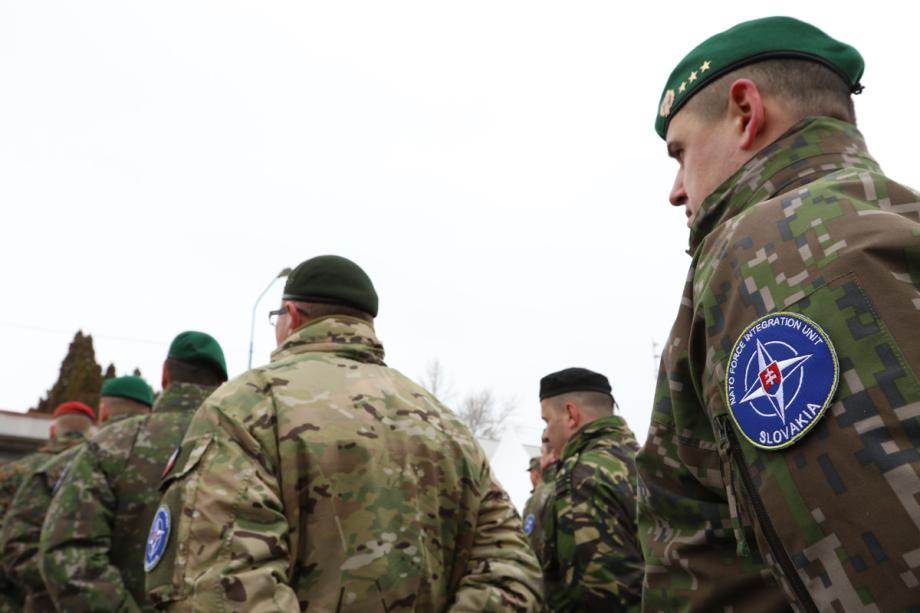Which Slovaks Believe in Conspiracy Theories?

- Slovaks are the most conspiracy-prone nation among the V4 countries.
- Three traditional conspiracy statements are the most widespread among the residents of three Slovak regions – the Banská Bystrica, Bratislava and Prešov Region.
- On average, one third of representatives from Košice, do not know whether to agree or disagree with conspiracy statements – the most of all regions.
- Slovaks with university degrees believe in conspiracy statements more than those with a basic education.
- Respondents living in big cities are - in some cases - even more conspiracy-prone than those living in rural areas.
According to public opinion polls conducted by GLOBSEC, Slovakia is the most conspiracy-prone of all Central European countries. Slovakia is the only country in Central Europe where the majority of respondents (53%) believe that world events are not decided by publicly elected representatives but secret groups seeking to establish a totalitarian world order. A similar number of Slovaks also agree with the anti-Semitic conspiracy statement that Jews have too much power and control many governments and institutions in the world. Just under 40% think that the 9/11 terrorist attacks were conducted by the American government rather than Al-Qaeda.
However, are some regions of Slovakia more conspiracy-prone than others? What type of Slovak is most susceptible to conspiracy theories? The following maps provide ample food for thought.
Map 1: Positive answers of respondents to conspiracy statements visualised according to the regional distribution of Slovakia.
As is possible to observe, these conspiracy statements resonate most with the residents of the Banská Bystrica, Bratislava and Prešov regions. The responses from Banská Bystrica are perhaps not that surprising given that the region was governed by Marián Kotleba, leader of the far-right People`s Party Our Slovakia between 2013 and 2017. Party members, including Kotleba himself, have been known to spread disinformation narratives and various statements about the Holocaust. There’s also evidence that the regional government’s printed newspaper has been used for such purposes while declarations and social media posts made by several party members have been even investigated by the police.
Conversely, while the Košice Region does not rank high in terms of belief in conspiracy theories this is not because its residents do not believe in them. On the contrary, it is because they cannot make their mind up regarding the validity of such statements. On average, 32% of respondents living in this region, do not know whether to agree or disagree with these three conspiracy statements, the most among all regions. Similarly, 40% of respondents do not know whether disinformation narrative that NATO and the US-led coalition supports terrorists in Syria is correct.
The most surprising responses come from the Bratislava Region, which encompasses Slovakia’ capital city. Data from GLOBSEC Trends 2018 shows that 50% of respondents in this region agree with the abovementioned disinformation narrative. An explanation as to why people living in a very “rich” and urban region with a high GDP believe in conspiracy theories and disinformation could stem from their level of education.
Map 2: Positive answers of respondents to disinformation statement about NATO according to the regional distribution of Slovakia.
Interestingly, Slovakia is the only V4 country where it is possible to observe a direct correlation between the belief in conspiracy theories and higher education levels. Slovaks with a university degree tend to agree with conspiracy statements more than those who received a basic education. For example, while 55% of university educated respondents think that secret societies are aiming to establish a totalitarian world order, only 48% with basic education think along the same lines. Similarly, 40% of respondents with university degrees think that the American government conducted the 9/11 terrorist attack, not Al-Qaeda.
In this category, Slovakia is an outlier. In all other V4 countries the data shows indirect correlation between the belief between the conspiracy statements and reached higher education levels. The reasons behind these findings might have various dependent and independent variables. The widespread belief in conspiracy theories in Slovakia might also be reflecting gaps in the Slovak education system and pointing out the lack of media literacy.
Another explanation might be that Slovaks believe in all the messages that their political representatives spread. While disinformation narratives used to be a characteristic of far-right extremists it has nevertheless been possible to observe the emergence of conspiracy among mainstream political representatives. In this sense, ordinary people are just following the perceptions of political elites that they elected.
Our data also provides some startling insights into how different types of geography account for belief in conspiracy theories. The following charts show that while conspiracy statements regarding secret societies and Jews having too much power resonate with a significant amount of respondents in rural and urban areas, the belief that the American government was behind 9/11 and the US-led coalition support terrorists in Syria are more popular among respondents living in bigger cities.[1] One explanation, though very simplistic, could be that more people with higher education live in bigger cities.
Interestingly, Slovakia is the only V4 country where it is possible to observe a direct correlation between the belief in conspiracy theories and higher education levels. Slovaks with a university degree tend to agree with conspiracy statements more than those who received a basic education. For example, while 55% of university educated respondents think that secret societies are aiming to establish a totalitarian world order, only 48% with basic education think along the same lines. Similarly, 40% of respondents with university degrees think that the American government conducted the 9/11 terrorist attack, not Al-Qaeda.
In this category, Slovakia is an outlier. In all other V4 countries the data shows indirect correlation between the belief between the conspiracy statements and reached higher education levels. The reasons behind these findings might have various dependent and independent variables. The widespread belief in conspiracy theories in Slovakia might also be reflecting gaps in the Slovak education system and pointing out the lack of media literacy.
Another explanation might be that Slovaks believe in all the messages that their political representatives spread. While disinformation narratives used to be a characteristic of far-right extremists it has nevertheless been possible to observe the emergence of conspiracy among mainstream political representatives. In this sense, ordinary people are just following the perceptions of political elites that they elected.
Our data also provides some startling insights into how different types of geography account for belief in conspiracy theories. The following charts show that while conspiracy statements regarding secret societies and Jews having too much power resonate with a significant amount of respondents in rural and urban areas, the belief that the American government was behind 9/11 and the US-led coalition support terrorists in Syria are more popular among respondents living in bigger cities.[1] One explanation, though very simplistic, could be that more people with higher education live in bigger cities.
[1] Slovakia has only 2 cities, Bratislava and Košice, with over 100 thousand residents.

Senior Research Fellow, Centre for Democracy & Resilience